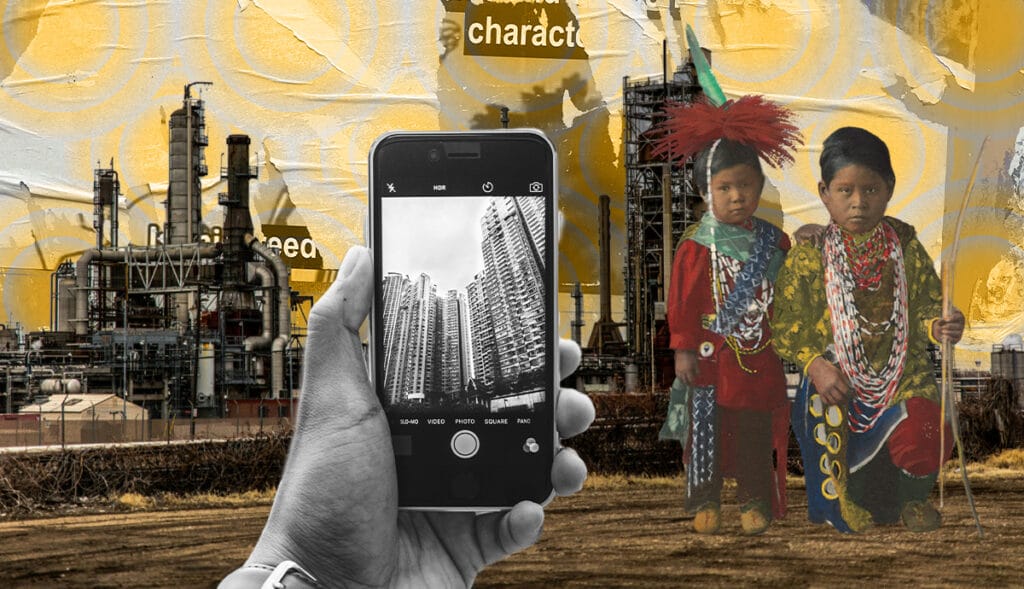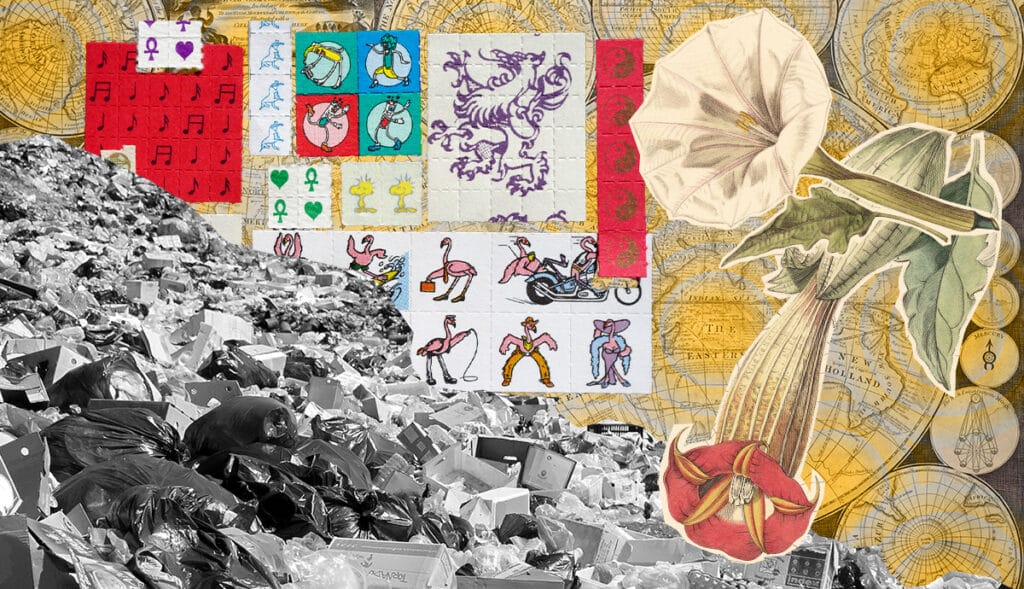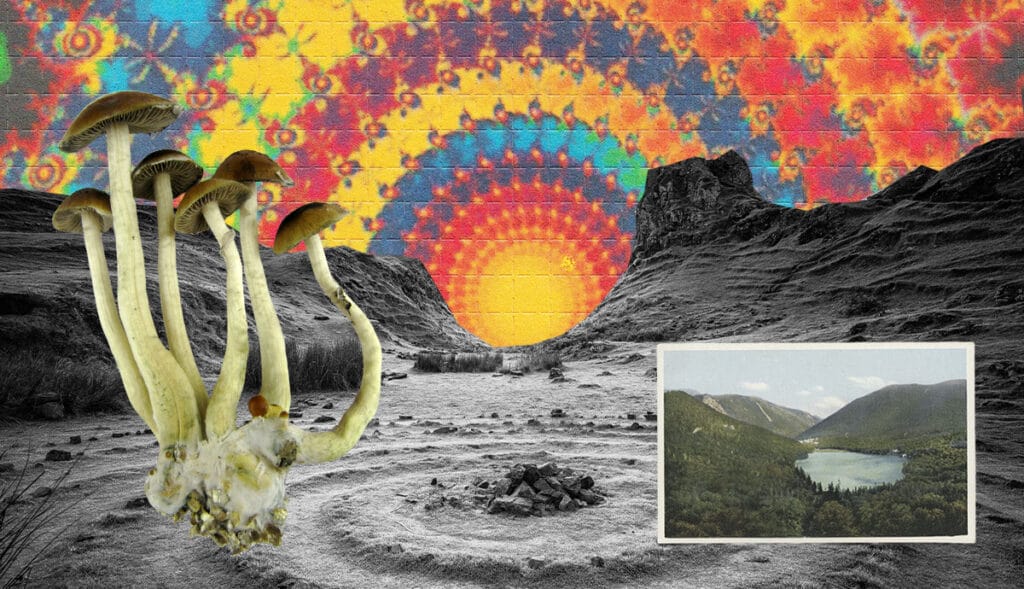In an age where technology has made it easier than ever to reach each other, humanity faces a glaring paradox: people are more disconnected than ever before, and the need for togetherness has never been greater.
Disconnection isn’t just a social or personal issue – it’s a driving force behind the multiple, interconnected crises we’re facing today. This “polycrisis” is a term that speaks to a complex web of global challenges like climate change, social inequality, and political instability, which are deeply intertwined with the alienation we feel from each other, our environment, and even ourselves. We find ourselves caught in a vicious cycle that erodes our ability to innovate, collaborate, and maintain the relationships necessary to solve enormous problems.
But there is hope in psychedelics. As powerful tools that can heal fractures, psychedelics can restore our sense of belonging and connection with ourselves, each other, and the planet. By addressing the roots of alienation, psychedelics can offer a solution to not only individual and collective repair, but also a way to tackle the global polycrisis threatening our future.

Understanding Modern Alienation: Fuel for Fragmentation
Around the world, people are feeling a profound sense of disconnection – socially, culturally, environmentally, and from themselves. Over 60% of adults are chronically lonely, and this number continues to rise. Modern alienation has led to widespread isolation, division, and perhaps most disturbingly, a loss in the meaning in life for many people. It isn’t just harmful for individuals; it also fuels the larger polycrisis we face by undermining our ability to collaborate, innovate, and sustain a healthy relationship with our world.
Here are some of the most prevalent forms of modern alienation:
Social Alienation
Many people feel increasingly disconnected from the social groups that used to give them a sense of belonging. While social media seems to connect us, it actually deepens these divides, creating echo chambers where different perspectives aren’t usually celebrated. This divide makes it hard – if not impossible – to create the collective will that’s required to solve global problems. The ripple effect of failing to solve one issue, like social isolation, intensifies parallel issues, like political unrest or “othering.”
Cultural Alienation
As the world becomes more globalized, many people feel estranged from their cultural roots, especially if they live in environments where their culture is underrepresented or misunderstood. Losing your cultural identity can cause people to feel confused and like they don’t belong, weakening the social fabric that’s crucial to building cultural identity worth preserving. The erosion of cultural identity doesn’t just impact people, but it weakens our ability to draw on each other’s perspectives, which is crucial to navigate complex global problems.
Environmental Alienation
Urbanization and modern living have distanced us from the natural world, contributing to a growing environmental crisis. Many people feel disconnected from nature, leading to a lack of appreciation for the environment and a sense of being out of place in the world. This is a particularly deadly example of alienation: when people don’t feel connected to the earth, they’re less likely to try to protect it. We’re now caught in a vicious cycle, in which environmental destruction is perpetuating social and economic instability, and obliterating quality of life for many.
Personal Alienation
On a more intimate level, many people feel disconnected from themselves, and are living lives that don’t align with their values, wants, or actual needs. We can see it all around us, in each other, and ourselves, manifesting as depression, anxiety, and a deep sense of unfulfillment. When we’re disconnected from our inner selves, we’re less likely to engage in our world, weakening our capacity for empathy, creativity, and resiliency in the face of glaring global problems that need solving now.

Psychedelics as a Solution: Reconnecting to Combat a Global Polycrisis
Psychedelics offer a powerful solution. These compounds have shown remarkable potential in healing the mind and restoring crucial lost connections: socially, culturally, environmentally, and personally. By repairing these connections, we begin to lay the groundwork for solving some of the most destructive problems plaguing our planet today.
Repairing Social Connections: Building Resilient Communities and Relationships
Psychedelics can break down the barriers that fragment our communities. In communal settings, such as retreats or group ceremonies, psychedelics foster a sense of unity and shared experience.
In a 2021 Imperial College London study, researchers studied how group psychedelic experiences can create a profound sense of “communitas,” or deep togetherness, among participants. This shared experience transcends usual social structures, leading to lasting improvements in social connectedness and well-being.
Psychedelics can play a major role in mending fractured relationships: in families, between romantic partners, or even between nations. In romantic relationships, MDMA-assisted therapy has been shown to help couples reconnect and deepen their understanding of each other. On a larger scale, psychedelics could be used to overcome entrenched national dogmas, fostering mutual understanding and peace between nations. The historic Soviet-American science conference at Esalen is a prime example, when new age practices led to a vision of peace during the Cold War.
By rebuilding social connections, psychedelics can strengthen the communal ties necessary to address global challenges together.
Reviving Cultural Identity: Protecting Diversity in a Polycrisis World
Culturally, psychedelics are helping people all around the world reconnect with their roots and heritage.
Indigenous communities have used psychedelics like peyote and ayahuasca in ritualistic and medicinal contexts for centuries. And today, they’re being used to help ensure that Native American youth do not lose the connection to their heritage. Peyote remains a central sacrament to the Native American Church, and has been used successfully to reconnect Native Americans to their language through song and chanting (and reliable religious experiences). In addition to reconnecting many Indigenous people with their spirituality, ceremony is reconnecting them with their language, which is really important because it was lost for so many people as a result of colonization.
Reconnecting to your cultural identity doesn’t just help heal personal alienation, but also improves the diversity of perspectives and solutions needed to navigate the complexities of a globalized world facing multiple crises.
Restoring Environmental Connection: Fostering Ecological Stewardship
Psychedelics can foster a deep reconnection with the natural world. When people adopt a deep love of nature, it is, in theory, possible to solve colossal environmental problems.
Many who take psychedelics outdoors report a heightened awareness of their connection to the earth. It can inspire people to live more sustainably and commit to protecting the planet. By rekindling our connection to nature, psychedelics can help reverse the environmental destruction that fuels global polycrisis, promoting behaviors and policies that prioritize ecological balance, sustainability, and even regeneration.
A famed 2019 study by researchers Sam Gandy, Robin Carhart-Harris and others known as the Nature Relatedness Study. The findings suggest that psychedelic experiences can lead to significant and lasting changes in personality, particularly in terms of increased openness and nature relatedness. These changes may also be linked to shifts in political views, promoting more liberal and pro-environmental attitudes. This underscores the potential of psychedelics not only for individual growth but for broader societal impacts.
A 1966 study, Psychedelic Agents in Creative Problem-Solving, demonstrated how psychedelics helped scientists solve complex problems, leading to significant technological advancements. Imagine the potential if psychedelic-inspired innovation were applied to environmental sustainability or the development of new, greener technologies. By unlocking new ways of thinking, psychedelics can help us develop solutions that address the root causes of environmental crises, rather than just treating the symptoms.
Personal Reconnection: Empowering People For the Good of the Planet
On a personal level, psychedelics offer a powerful tool for self-reconnection, particularly in therapeutic settings. They can help individuals explore their shadow, confront unresolved trauma, and rediscover their true selves. This process of self-discovery and deep healing isn’t just transformative for the person, but has ripple effects that improve our capacity to address global challenges. When we’re more connected to ourselves, we’re more likely to engage meaningfully with the world around us.
Take the opioid crisis, for example. Psychedelics offer a promising alternative or addition to traditional pain management, and may drastically reduce chronic pain without the need for opioids. This could lead to a significant reduction in opioid use and addiction, alleviating the strain on healthcare systems and helping to reinvigorate families and communities.
We see the ripple effect of personal reconnection and doing deep inner work all over the psychedelic field; using the principles of Stan Grof, Carl Jung, and Internal Family Systems to help individuals participate in this adventure of self-discovery.
In fact, we’re offering our Vital students the chance to specialize in Somatics, Jung and Depth Psychology as part of their certification for the upcoming September cohort. We’re the first education program to offer this kind of specialization, which we think will be really crucial to helping people heal themselves and others.

The Transformative Global Potential of Psychedelics
The potential of psychedelics to heal and reconnect us, both personally and collectively, is immense. But we can only do it if we approach these substances with responsibility, respect, and a deep understanding of their power.
Philosopher Buckminster Fuller once said, “You do not belong to you. You belong to the universe.” Our role is to use our experiences to help others, and psychedelics provide us with the tools to do it.
Psychedelics can indeed reconnect us, inspire innovation and creativity, and help us solve complex polycrisis problems we face as a society. But most importantly, psychedelics remind us of our interconnectedness: that we are all part of a larger whole, and that our actions have ripple effects that extend far beyond ourselves.


